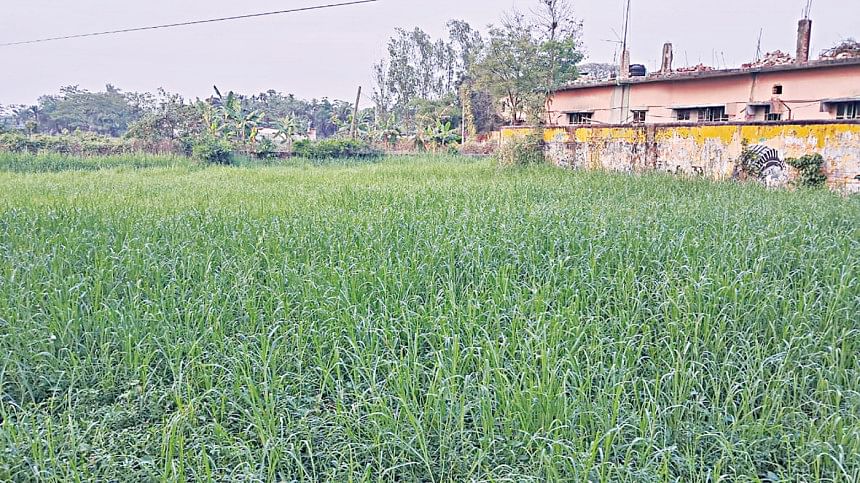Commercial grass cultivation becoming popular in Ctg

While working as a day labourer around six years ago, Abul Kashem struggled to make ends meet for his five-member family with his limited income.
The situation got worse during the pandemic, when there was hardly any work for day labourers like him.
Finding no other way, Kashem leased 1.2 acres of land in Shikalbaha union under Chattogram's Karnaphuli upazila, and began cultivating different varieties of grass, and sold the grass used as fodder for livestock in local markets.
Over time, the simple yet ingenious initiative turned Kashem's wheel of fortune.
"I am now doing financially well by cultivating grass. Now I am planning to lease more land and expand my venture," said Kashem, 45.
Like him, over 1,000 people in the upazila are engaged in commercial cultivation of grass. They have not only become financially solvent, but are also helping the local dairy farms increase milk production, according to the livestock department in the upazila.
Currently, local farmers are cultivating German and Napier varieties of grass on around 1,500 acres of land.
Finding it profitable, some paddy farmers in the upazila are also switching to grass cultivation.
According to information of the livestock department and Chattogram Dairy Farm Association, over 25,000 animals in 1,500 farms in the upazila produce around 60,000 litres of milk daily, meeting the demand of consumers in the port city.
During a recent visit to Karnaphuli upazila, this correspondent observed some people levelling fields to plant grass saplings. Some were also seen cultivating grass in the yards of their homes due to lack of land.
"I am cultivating grass on 0.6 acres of land leased from a neighbour. The initiative improved my financial situation," said Zahangir Alam of the upazila.
Farmers said they can sell grass at Tk 6-7 per kilogramme to the dairy farmers.
Dairy farmers in the upazila revealed the local grass cultivation is a boon to their businesses.
"By buying grass as fodder for out cattle, I managed to reduce the cost of milk production in my farm, thereby making better profit," said Habibur Rahman, owner of Shah Islamia Dairy Farm in the upazila.
Contacted, CDFA president Nazim Uddin Haider said, "The local grass-producers usually deliver grass door-to-door after processing. This has been reducing production cost of milk, helping dairy farmers to boost their businesses."
"Without feeding grass regularly, rearing cattle for milk production is not possible," said Ruman Talukder, Karnaphuli upazila livestock officer.
"As such, dairy farmers are dependent on buying grass for fodder, which in turn has popularised commercial grass cultivation in the upazila," he added.

 For all latest news, follow The Daily Star's Google News channel.
For all latest news, follow The Daily Star's Google News channel. 



Comments